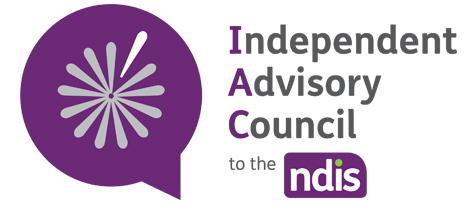The Work of the IAC 2013-17
At a glance
1. An ordinary life in sustainable NDIS
R&N support for an ordinary life (2.1)
R&N support for families (2.2)
The planning process (2.3)
2. A responsive NDIS fit for purpose
Members’ reports on the ground
Roving visits
Feedback on Service Delivery Operating Model
Input and feedback to discussions on
Participant pathway
Information Linkages and Capacity Building (ILC)
Outcomes framework
3. Self-determination
Choice and control (3.1)
Self-direction & self-management (3.2)
Productivity Commission Submission into the NDIS costs (3.3)
Self-management; value, risks & strategies for growth (3.4)
Evidence of improper payments (3.5)
What should the NDIA understand about Intellectual Disability? (3.6)
Support for decision-making (3.7)
4. Capacity building
Capacity building for participants(4.1)
Capacity building for staff (4.2)
Activating capacity building (4.3)
5. Independence
Promoting independence (5.1)
NDIS supports for independence (5.2)
6. Social & economic participation & inclusion
Genuine community engagement (6.1)
Innovation in housing and support (6.2)
Barriers to housing and support (6.3)
Submission to Senate Community Affairs Committee into delivery of outcomes under the NDIS (6.4)
7. Reducing vulnerability & enabling positive risk
Enhancing personal safeguards (7.1)
Building capacity and reducing vulnerability (7.2)
Q&S for people in closed systems (7.3)
8. Equity
Mental Health and the NDIS: A Literature Review (8.1)
Implementing the NDIS for people with disabilities related to mental health (8.2)
Improving access for people in Psychiatric Hostels, Supported Residential Services and Boarding Houses (8.3)
Guidance on the application and promotion of peer work in the NDIS (8.4)
Peer workers in the NDIS (8.5)
Submission to the Joint Standing Committee (8.6)
Equitable access for people on the margins (8.8)
Equitable access for people in touch with criminal justice (8.9)
People who are deaf and hard of hearing (8.10)

